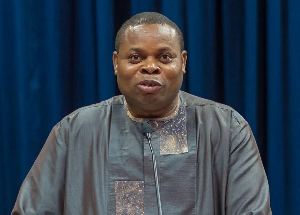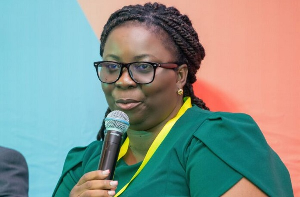A couple of days ago, the Director, Anti-Corruption unit, CHRAJ (Commission for Human Rights and Administrative Justice), Mr. Charles Ayamdoo, issued a statement in Ghana that “Gifts to Public Officials are bribes”. He stated that donations given as gifts lead to corrupt practices in various state institutions.
World Bank experts define Corruption as the abuse of public power for private gain. Some of the common forms of corruption are bribery, abuse of public funds, nepotism, and influencing laws. According to experts on Financial World issues, Corruption comes at a cost to everyone therefore it should be everyone’s concern. Globally, it is estimated that between $1 trillion and $1.6 trillion dollars are lost each year to illegal activities, arising from corruption. It should come as no surprise to anyone that with the high rate of corruption, citizens of Ghana and many other African countries continue to live in substandard conditions. What is more, Corruption decreases the amount of a country’s wealth and lowers the standard of living, so it will affect you even if you don’t come into direct contact with it. Some of the secondary effects of Corruption are that it discourages businesses from operating properly, thereby reducing the overall wealth in the country. It also reduces the amount of money available to pay workers; it lowers the government’s capacity to purchase goods and services. In addition, it gives a distorted view of the way government spends its money and results in low value services, and inefficient systems such as health, roads, schools, policing, sewer and drainage.
In Ghana, corruption has been a very gradual process. There was a time that a person felt extreme shame and families were stigmatized because a family member had been found to be corrupt. That was yesteryear: now the Corrupt shows no sign of shame, people have been desensitized. Unchecked, corruption has become an accepted norm of everyday life in Ghana and has permeated every fabric of the society. People who have amassed wealth through corruption are often given the best seats of the house, so to speak. When auditors are sent to state institutions to verify financial accounts and check into company procedures, the Managers who go to extreme lengths to serve them lunch and expensive drinks are paying the auditors with food and gifts so they can look the other way. That's bribery of the highest order; a conflict of interest situation. Corrupt government office holders bend the rules so that it favours themselves, their families and friends, thereby destroying the trust public have in them. In Ghana, no one political party, ethnic group or gender or age group can exempt itself from this destructive practice. There is a corruption galore - everywhere you turn office holders expect bribes in order to perform their duties, at the customs, the harbour, by the police, etc.
It is without a doubt that Ghana needs good leaders in order to fight Corruption. While in office, our leaders must articulate their anti-corruption visions properly, and show good examples for other office holders to emulate. They must provide a strong moral ground for the citizens otherwise their actions or inactions enable Corruption to continue. Incidentally, recent outcries on financial entitlements and emoluments to Ghana’s ex-Presidents make it difficult for us to discuss corruption freely: people are saying that all those financial trappings constitute an abuse of public funds, and therefore borders on corruption. Can Ghana afford to provide multiple houses, numerous cars, yearly foreign travel packages, and what have you, to its ex-Presidents when the people continue to suffer so much, and lacking in the basic human needs? The more we allow this issue to go unresolved, the more embarrassing it will become as Ghana ends up with 3, 4 or more ex-Presidents relying heavily on its state coffers.
A good anti corruption policy should encompass the following:
Clear and concise anti-Corruption rules and policies.
Good regulators to enforce rules.
Code of Conduct/Ethics for public officers to follow.
Identify conflict of Interest situations.
Well defined laws and appropriate punishment for people who break laws. Reward system for Law enforcers.
Programs that are inclusive so people are made to feel a part of all processes. Good partnership between government and people.
Fair wages.
Impress on public that respect for government is everyone’s responsibility. Protection of government assets.
Enforcing the Freedom of Information Bill to ensure transparency. Government to provide good stewardship on behalf of all Ghanaians.
Bellinia Asiedu-Young
Richmond Hill, Ontario
Opinions of Monday, 31 October 2011
Columnist: Asiedu-Young, Bellinia














